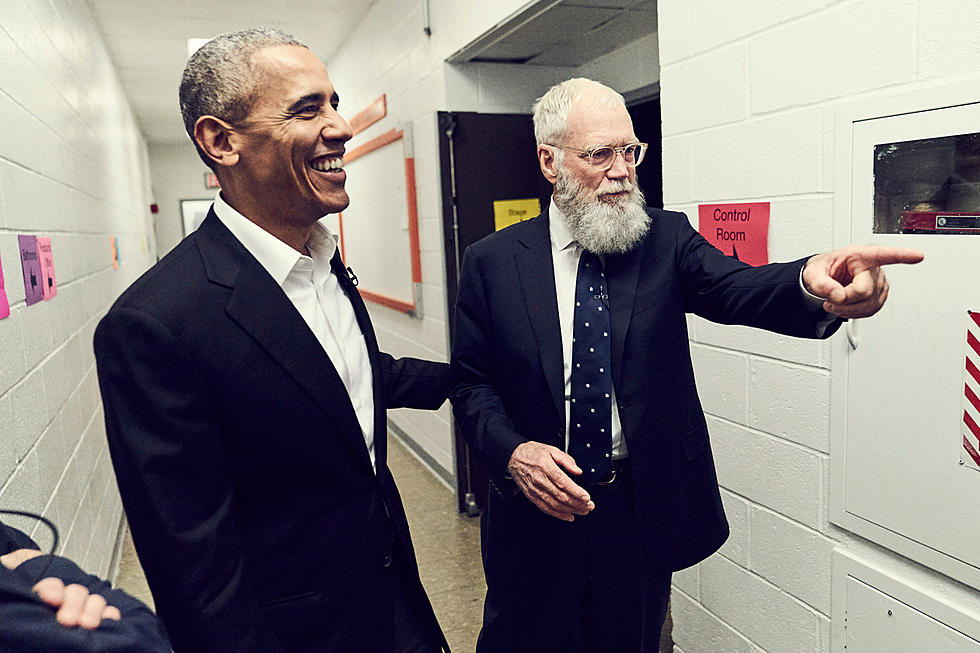
‘Whiskey Tango Foxtrot’ Review: Tina Fey Makes ‘Zero Dark Forty’ Very Watchable
Tina Fey has proven herself capable of elevating some fairly mediocre material. (Remember Admission? Of course you don’t.) And while Whiskey Tango Foxtrot hardly presents a formidable challenge, it does put that statement to the test. The latest film from the directors of Crazy Stupid Love and Focus is just as glossy as its predecessors, but without the comedic vibrance of Fey, Whiskey Tango Foxtrot could have easily become a spiritual successor to Eat, Pray, Love.
Even with Fey’s engaging characterization of a middle-aged woman exploiting a journalistic expedition to Afghanistan to achieve the sort of self-actualization found in the Book of Oprah, Whiskey Tango Foxtrot is still rather comparable to watching Julia Roberts get her groove back. Although just as self-involved and formulaic, directors John Requa and Glenn Ficarra succeed in making something that is infinitely more watchable, if ultimately a bit too fickle and small-minded in a way that feels counterintuitive.
Written by frequent Fey collaborator Robert Carlock, Whiskey Tango Foxtrot is based on the true story of journalist Kim Baker, who eagerly abandoned her post as a news script-writer to become a field reporter in Afghanistan. As Fey’s Baker explains during a contrived monologue packed with one hell of a corny metaphor, she took the risky job because she had an epiphany while pedaling on her stationary bike, to which a fellow journalist accurately replies, “That’s the most American white girl story I’ve ever heard.”
It’s one of a few half-baked attempts at self-awareness and subverting this all-too-familiar middle-aged, self-actualization narrative, though Whiskey Tango Foxtrot struggles to maintain that cleverness about as often as Baker struggles with sobriety and, ultimately, reality. Carlock’s script is as restless as its protagonist, casually flitting from conflict to conflict and unable to root itself in anything too genuine. Just as soon as it locks on to something potentially poignant, Baker is on to the next scene. To wit: She’s conveniently lured into a room where women remove their burkas and reveal that they’ve been purposefully sabotaging a well installed by the local marine unit (headed by a delightful but unfortunately scarce Billy Bob Thornton) so they can continue meeting away from their controlling husbands. It’s a moment that could provide much needed narrative resonance, similar to Baker’s exploration of oppressed women in Kandahar, but the moment is treated as a digression and quickly abandoned.
There is a perceptible theme of white privilege in Baker’s journey, even if she dismisses any selfish motivation as she repeatedly plays the part of entitled American. Both the screenplay and Baker undermine themselves with this persistent denial; it’s like watching a willfully naive person plug their ears any time the conversation takes a turn toward something unpleasant. Perhaps Whiskey Tango Foxtrot fails because, like Baker, it is too ambitious, attempting to pack too much of the journalist’s life story into a two-hour film. Rather than lock in on any one political target and explore the complexities of international relations and cultural differences, these concepts are as fleeting to the viewer as they appear to have been to Baker — they exist only to advance her personal narrative. As soon as they’ve served her personal agenda, they cease to exist. The film succeeds in highlighting the myopic, self-serving view of a particular type of American citizen — but it’s not entirely clear whether it’s doing so purposefully.
Though obviously comparable to the sort of “middle-aged woman decides to live out her vision board fantasy” films that crop up every few years, you could just as easily compare WTF to Zero Dark Thirty — both feature determined white women embedded in countries in South Asia, pursuing their ideals with unwavering resolve. Fey’s movie even appears to directly elicit this comparison with a hostage retrieval sequence that mimics the style of the climactic third act in Kathryn Bigelow’s (much better) film. In the most reductive terms, Whiskey Tango Foxtrot is basically This Is 40 meets Zero Dark Thirty — it’s Zero Dark Forty.
And yet, for all its failings (of which there are many), Whiskey Tango Foxtrot is still a rather enjoyable and mostly pleasant viewing experience, the kind of movie that’s easy to watch and digest when taken at its glossy face value. Margot Robbie and Martin Freeman are predictably charming as fellow journalists, and the film takes advantage of our familiarity with their respective archetypes and subverts those expectations accordingly. Less appealing is the baffling casting of white actors Alfred Molina and Christopher Abbott as Afghan characters. Molina is of Spanish and Italian descent, and while Abbott’s heritage is Portuguese and Italian, he’s from Connecticut and previously had a recurring role on Girls — in case you doubted the extent of his whiteness.
Whiskey Tango Foxtrot is less “WTF” than that title cheekily implies, and though it refuses to indulge any particular poignance or depth, Fey is perfectly cast in yet another pleasant and generally likable film from Requa and Ficarra. There’s a moment early on when Robbie’s Tanya explains that Fey’s Kim may have been a six or a seven in America, but in Afghanistan, she’s easily a nine-and-a-half or even a 10. Unfortunately, Whiskey Tango Foxtrot remains a solid six regardless of international borders.
More From Alt 101.7










